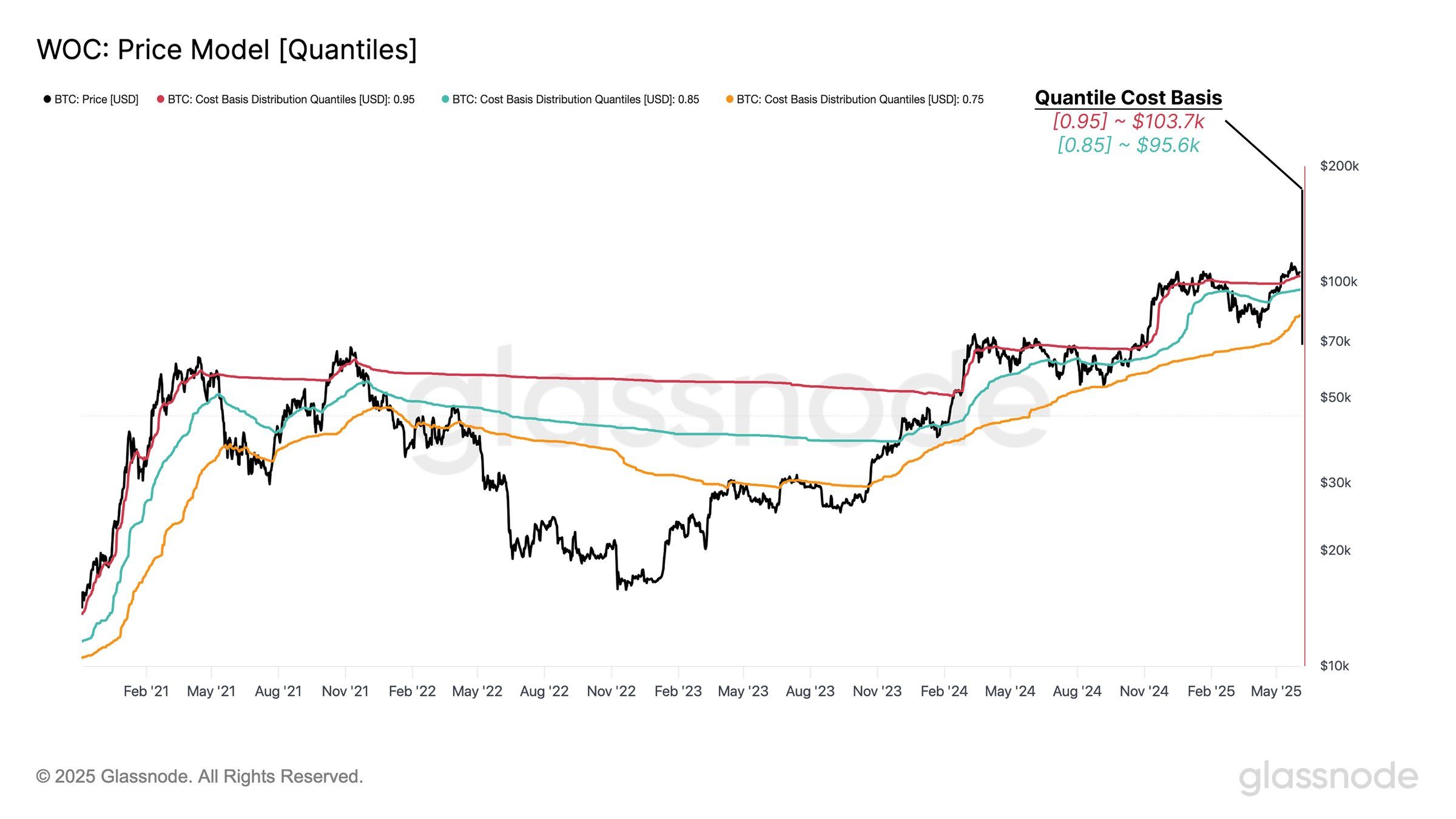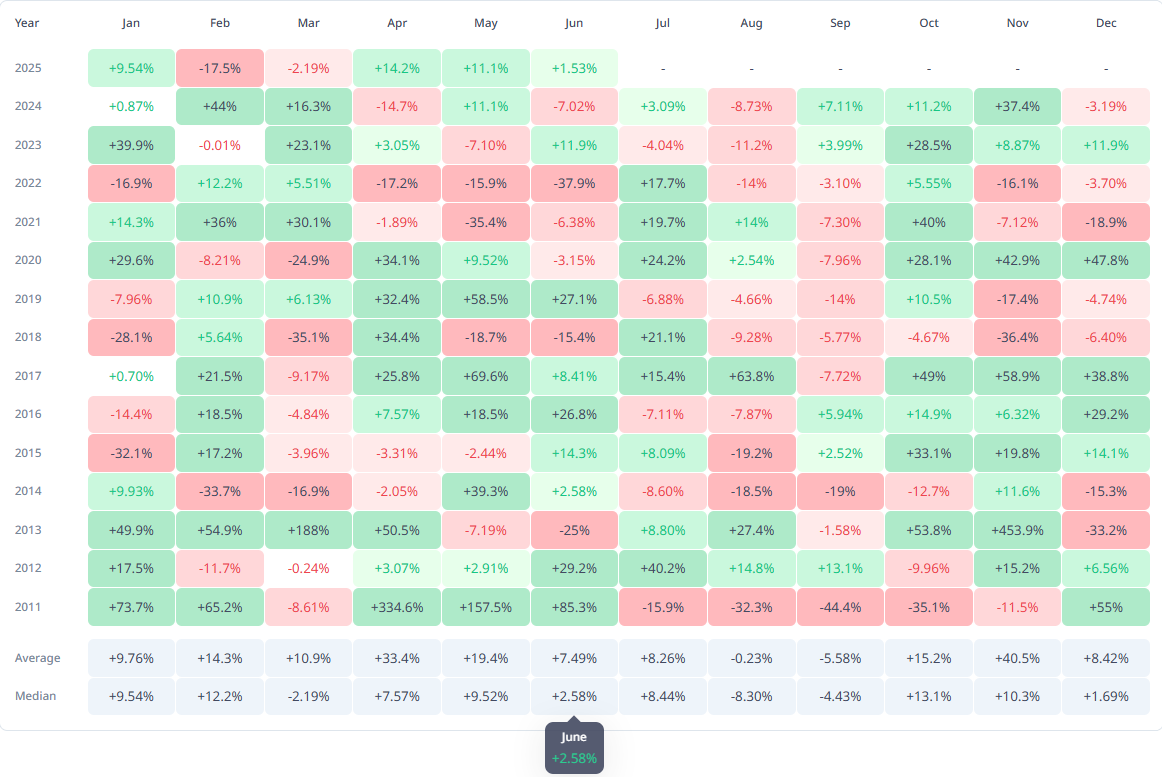Bitcoin May Face Short-Term Correction Amid Long-Term Holder Selling Pressure and Key Support Tests
BTC/USDT
$23,298,561,101.23
$66,025.52 / $63,030.00
Change: $2,995.52 (4.75%)
-0.0012%
Shorts pay
Contents
-
Bitcoin navigates a critical juncture as it ends a recent downtrend, facing key support levels at $103,700 and $95,600 amid selling pressure from long-term holders.
-
Market dynamics suggest that sustained selling by long-term holders could push Bitcoin toward these support zones, while a bullish reversal might propel it beyond $106,265 resistance.
-
According to COINOTAG analysis, Bitcoin’s historical monthly returns and cost basis quantiles provide valuable insight into potential price movements and support levels.
Bitcoin faces potential correction with key supports at $103,700 and $95,600; a bullish breakout above $106,265 could signal a strong recovery amid long-term holder selling pressure.
Key Support Levels Highlight Bitcoin’s Vulnerability Amid Selling Pressure
Bitcoin’s recent price action underscores the importance of its cost basis quantiles as critical indicators of market sentiment. The 0.95 Spendable Supply Distribution (SSD) level at $103,700 marks a significant support zone, where 95% of circulating Bitcoin was acquired below this price. This concentration suggests that sellers above this threshold are limited, potentially creating a strong floor for Bitcoin’s price.
Further down, the 0.85 SSD at $95,600 represents another vital support level, where 85% of Bitcoin holders have a lower cost basis. These quantiles are essential for understanding the potential depth of any correction, as they highlight price points where selling pressure may diminish due to holder profitability thresholds.
While selling from long-term holders (LTHs) has intensified recently, these support levels could act as buffers against a steep decline, providing traders and investors with reference points for risk management and entry strategies.

Despite short-term selling, Bitcoin’s macroeconomic indicators and historical data suggest a resilient outlook. June has historically been a positive month for Bitcoin, with a median monthly return of 2.58%, indicating potential for recovery following corrections.
This historical trend supports the view that while Bitcoin may experience volatility due to LTH selling, the broader market momentum remains constructive, potentially paving the way for renewed bullish sentiment if external conditions align favorably.

Bitcoin Price Dynamics: Resistance and Support in Focus
Bitcoin’s price has rebounded by approximately 4.7% over the past three days, currently trading near the resistance level of $106,265. This resistance is a pivotal point, as failure to breach it could signal a short-term retracement.
Should Bitcoin fail to sustain above this resistance, the next immediate support lies around $105,000, followed by the critical $103,700 level identified by the cost basis quantiles. A breach below these supports could lead to further downside pressure, potentially testing the $102,734 mark.

Conversely, a successful breakout above $106,265 may invalidate bearish scenarios and open the door for a rally toward $108,000 or higher. Such a move would indicate renewed buying interest and could shift market sentiment toward a more bullish trajectory, counteracting the selling pressure from long-term holders.
Market Sentiment and Long-Term Outlook
Market participants should closely monitor Bitcoin’s interaction with these key levels, as they will likely dictate near-term price direction. The interplay between selling pressure from long-term holders and broader market sentiment remains a critical factor in Bitcoin’s price stability.
Investors are advised to consider these quantile-based support zones when planning entry or exit points, while also keeping an eye on macroeconomic developments that could influence market momentum.
Conclusion
Bitcoin stands at a crossroads, balancing between potential correction and a bullish breakout. The identified support levels at $103,700 and $95,600 provide important safety nets amid selling pressure from long-term holders, while resistance at $106,265 remains a key hurdle for upward momentum. Understanding these dynamics is essential for navigating Bitcoin’s volatile landscape and making informed investment decisions.
